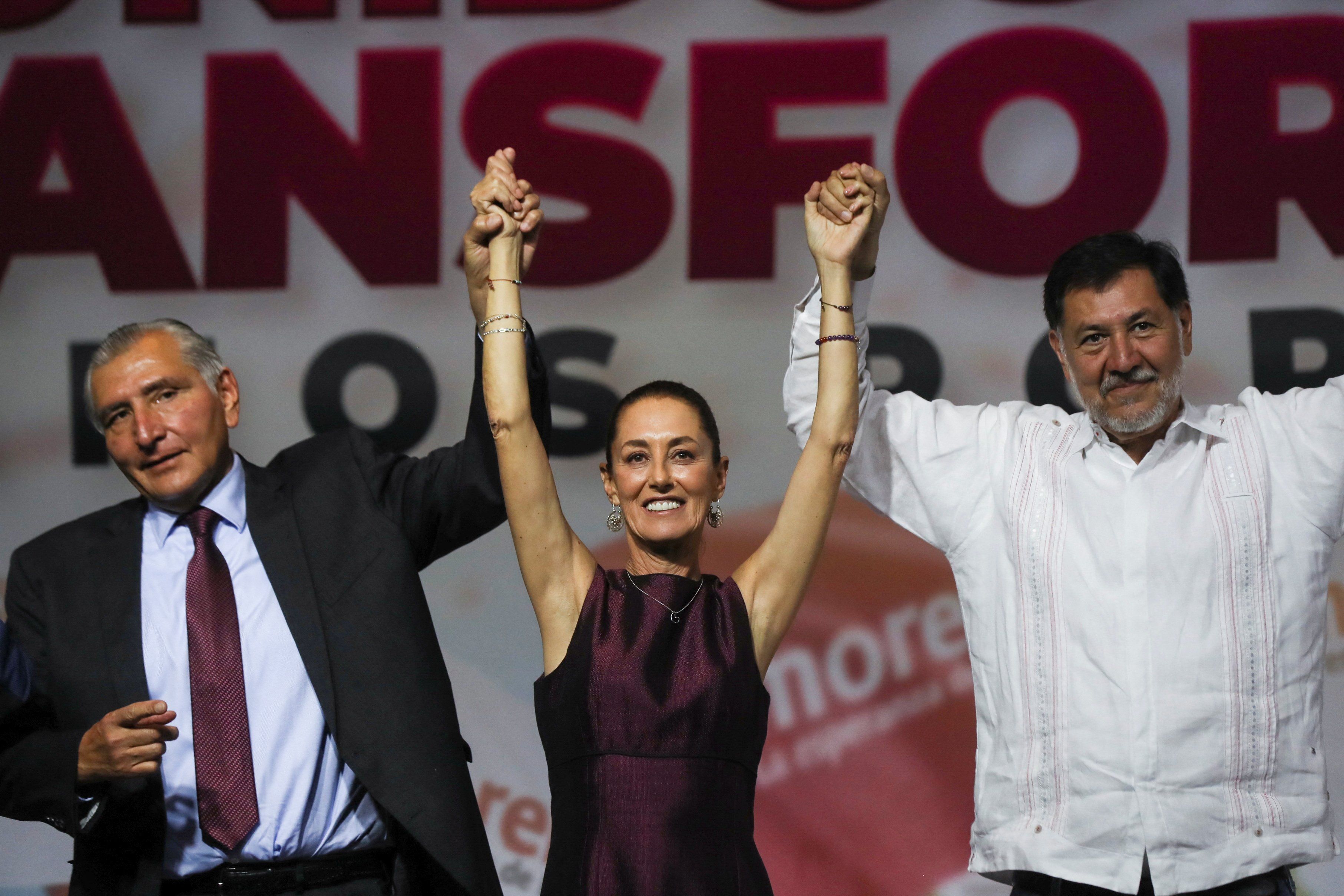By this time next year, Mexico is almost certain to have its first-ever woman president. Former Mexico City Mayor Claudia Sheinbaum clinched the presidential nomination of the ruling Morena party this week, setting up a contest against charismatic opposition Senator Xochitl Galvez in 2024.
The news comes among a series of victories for Mexico’s feminist movement in recent years, most recently highlighted in the Supreme Court’s decriminalization of abortion nationwide.
In 2019, Mexico’s legislature passed bills requiring a 50-50 gender parity in both houses of Congress, in top posts in the executive and judicial branches and on party candidate lists. No legislator voted against the package.
Since the requirements went into force in 2021, Mexico has become one of just six countries — and the only one besides New Zealand, which holds competitive elections — where women hold at least half of the seats in the national legislature. Ten years ago, women held only 33% of the Senate and 36% of the lower house in Mexico. What’s more, data from UN Women shows that one out of every four women who hold local elected office in Latin America are now in Mexico, where women make up 47% of local officials.
But progress on the political stage has not necessarily trickled into the lives of ordinary women in Mexico. Every day, an average of 10 women and girls are killed in an epidemic of femicide that is just one facet of Mexico’s problems with violence and insecurity. Women also earn about 14% less than men for the same work on average, with the majority living on less than $18 a day.
And even within the halls of power, top leadership positions on congressional committees and within political parties are still heavily dominated by men, according to Eurasia Group Mexico analyst Matias Gomez Leautaud.
“Both Sheinbaum and Galvez will struggle as female candidates with the same problem, which is that the male leadership of their own parties will try to impose their own themes and agenda on them,” he said. “And both of their successes will rely on how they thread this pressure from within while constructing an independent narrative, team, and agenda.”
More For You
America’s new National Security Strategy confirms what Europeans have feared for months: Washington now sees a strong, unified European Union as a problem to be solved, not an ally to be supported.
Most Popular
The power of sports
What’s Good Wednesdays™, December 10, 2025
Walmart's $350 billion commitment to American jobs
In this episode of Tools and Weapons, Microsoft Vice Chair and President Brad Smith sits down with Ed Policy, President and CEO of the Green Bay Packers, to discuss how purpose-driven leadership and innovation are shaping the future of one of the world’s most iconic sports franchises. Ed shares how technology and community-focused initiatives, from Titletown Tech to health and safety innovations on the field, are transforming not just the game of football, but the economy and culture of Green Bay itself. He explains how combining strategic vision with investment in local startups is keeping talent in the Midwest and creating opportunities that extend far beyond Lambeau Field.
Subscribe and find new episodes monthly, wherever you listen to podcasts.
More than a week after Hondurans cast their ballots in a presidential election, the country is still stuck in a potentially-dangerous post-election fog.
